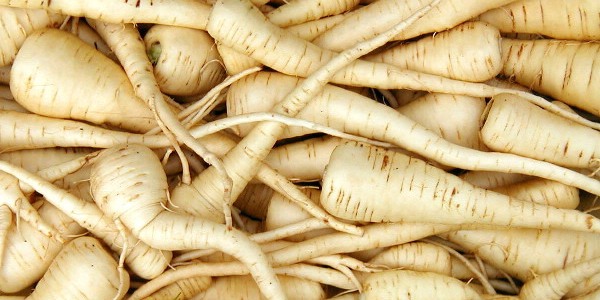 Overview
Overview
Parsnips (Pastinaca sativa), have often been confused with carrots due to their striking similarities. They belong to Apiaceae family where carrots belong. Parsnips have sweet, succulent underground tap roots.
1. Anti-oxidants
Parsnips are rich in anti-oxidants (poly-acetylene) such as falcarinol, falcarindiol, panaxydiol and methyl-falcarindiol. Anti-oxidants prevent free radicals from damaging the DNA of healthy cells in the body.
2. Dietary Fiber
Parsnips are rich in dietary fiber which meets the recommended daily allowance at 12% on a 2,000 calorie diet. Parsnips are soluble type of fiber and hence linked to decreased conditions such as hemorrhoids. The high fiber content in parsnips has also been associated with reduced cases of diabetes, high blood pressure, cancer, obesity and diverticulitis.
3. Folate
Parsnips contain folate, a member of the B family of Vitamins. Folate is involved in the synthesis of DNA, RNA and red blood cells. Taken in adequate amounts, this mineral compound lowers cases of depression, heart disease, cancer, poor vision due to advanced age and hearing loss. Folate improves on the functions of nervous system. Consumption of folate by women during pregnancy helps to lower congenital defects in newborn babies.
4. Potassium
Potassium is an important in the body as apart from serving as an electrolyte, it is vital for skeletal, cardiac and smooth muscle function. It is also involved in the repair and maintenance of healthy bones. Potassium found in parsnips helps to reduce stroke and high blood pressure
5. Vitamin C
Parsnips provide 13% of the Recommended Daily Allowance (RDA) of Vitamin C for women and 11 % for men. The vitamin, also known as ascorbic acid is useful for the health of bones, skin, blood vessels, immune system and teeth. Vitamin C is an anti-oxidant that deters free radicals from damaging DNA hence preventing conditions such as osteoarthritis, hypertension and heart disease.

